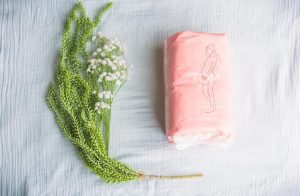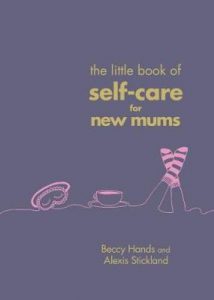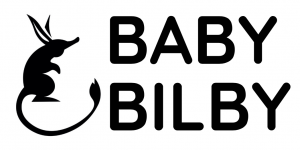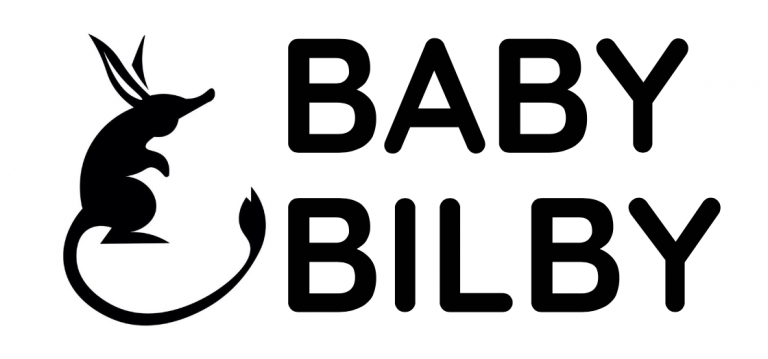Your 1 Week Old Baby
Bringing your tiny one home for the first time

Coming Home
Whether it was a hospital delivery, a home birth or something in between, after nine months of getting to know baby as they’ve grown inside you, you and your 1 week old baby are home together properly for the first time. While there’s all the excitement and joy that comes with this part of life, there’s also a whole lot of change and new things to get used to, both for your newborn baby’s world as well as your own. While parents have been navigating this journey for countless generations, it’s still new for you.
Are they supposed to look like that?
While it’s been a lot of preparation for you, your baby has been enjoying the comfort and calm of the womb. As bubba discovers this new world, their body will slowly adjust, and you’ll likely see the following changes happen over the next couple of weeks,
- The soft downy hair (called Lanugo) will start to fall away. This will also start to happen with any other hair your baby may have when they’re born. Don’t worry, this is supposed to happen, and you’ll find that when they start to grow it again, it will likely be a different colour as well.
- Your baby probably has a cone shaped head in the first few days. This might seem strange, but is just because they’ve squeezed through the birth canal, and over the coming weeks it’ll start to round out to a more normal shape.
- Some babies will have silky smooth skin, while others might have more wrinkles than a dried prune! Don’t worry, this is completely normal and is just the baby acclimating to a world outside of the womb.
- The umbilical cord. This one gets left out of the movies, but when bubba is born, a length of the cord will be left attached. Over the next 10 days or so, it will start to dry up, turn black and fall off. This might look scary, but it doesn’t hurt your baby at all, and is completely normal.
- When they’re born, you may think your child is rather well-endowed. A swollen scrotum or labia is the result of mumma’s hormones still swirling around the baby’s system, and over the next couple of days, this swelling will go away.
With so many changes, it’s easy to be unsure about what’s “normal” and what isn’t for your 1 week old baby. Thankfully you’re not alone, with your family GP, midwife, child/family nurse as well as other people in your life all ready and able to help you navigate it.
Interacting with your little one
By the time you’re home and settling in with your baby, you’ve most likely sniffed their head more times than you can count, stroking their wonderful little cheeks and holding their tiny tiny toes. As you start to engage with your newborn, there’s beautiful and exciting ways to engage with them through each of their senses. In fact, there’s a different way to engage with your 1 week old back and forth through each of the five senses.
- Sight: You’ll be staring at this little bundle every chance you get. Well the feeling’s mutual! Babies can only see between 15-25 cm, with their vision a bit blurry. This means they’ll be looking right back at you when you’re close and snuggling. Smiling and gazing at them in this time isn’t just nice to do, it helps them develop these skills themselves and fosters a stronger bond between you both.
- Sound: Your baby’s ears are certainly working, and you’ll see them respond to certain sounds. While a barking dog, slamming door or loud noise may startle them, there’s one sound they’ll prefer above all else, your heartbeat. For 9 months, this sound has been constant, along with the sound of your voice. So keep talking to them, hold them close to your chest. They may not be able to talk back, but they’ll coo now and then as they engage with you more and more.
- Touch: Skin on skin contact is one of the most intimate and comforting feelings people have, and this is no more important than with a newborn. Stroking their cheek gently will prompt them to turn towards you for a feed, while cuddles, snuggles and brushing your face against them all strengthen the bond you’re forming and help the baby develop many crucial social skills.
- Smell: The little one’s nose may be petite, but it’s working well already. They’ll favour mum’s smell more than anything, which is part of why a cuddle with her will help them settle. They also use smell to find milk, and it can help a lot with breasfeeding.
- Taste: While you might be craving all sorts of food, there’s only one thing your baby will want to taste, milk. Whether it’s breastmilk or formula, biology has ensured the baby will seek out this regularly to grow and healthily develop. Don’t worry if you’re having trouble breastfeeding, formula still does the trick, and holding your baby while they feed gives them the interaction they need.
There’s plenty of other ways to engage with your baby, and these will change and grow as the baby does, so enjoy this part of it all.
Taking care of yourself as well
It’s been a journey for you too! For roughly nine months, you’ve faced everything from nausea, cramps, swelling, discomfort, a constant need to go to the bathroom and plenty more. On top of that, you’ve just given birth. It’s likely you’re still feeling incredibly tender, and the pain down there is a whole new level. You may have stitches that just add to the discomfort of trying to sit down without pain. While the overwhelming joy and excitement of a newborn baby can have you forgetting about that all for a little while, it doesn’t stop it happening. On top of all that, the feeling of being overwhelmed is quite common, and post-partum depression can be at play too (one in nine new mothers suffer from it).
Remember that you’re not alone in this, no matter how it might feel. You’ve got a team of healthcare professionals, including your GP, midwife, child/family specialist as well as any partners. family or friends involved. They’re here for you as much as your child, and from making you some food to just having a chat and helping clean up, little things can help to make a difference.
A typical one week old’s day
- Newborns do a lot of sleeping, between 14-17 hours out of the 24 a day. They don’t have a circadian rhythm yet though, so this won’t be set to any kind of routine (don’t worry, this will change).
- As your baby’s digestive system is starting all on it’s own, there’s going to be a lot of changed diapers (expect 4-8 a day). Their poo will look thick and black, almost tar-like, don’t worry. It’s meconium, a mixture of skin cells and other things ingested during delivery, and is perfectly normal.
- Feeding is another regular activity, and should be happening every two to four hours. Don’t try to force a schedule, but let it happen as the baby wants it. This can also happen through the night, so be prepared to be waking up a lot.
- Cuddles. Bonding with your baby through cuddles, eye contact and talking to them is part of daily life and helps them develop social skills as well as physical ones.
Tips For You This Week
Start a baby diary
Measuring your baby’s weight and size, recording their poos and any other activity might seem a bit odd at first, but it helps you to become more familiar with everything.
Get in those snuggles
Cuddling your baby engages them with physical contact, the sound of your heartbeat, your smell and eye contact. It’s one of the best and most important things to do regularly, and will help not only their development, but helps you too (seratonin levels increase).
Utilise your support network
Whether it’s calling your own parents on the phone, having your partner take care of the chores or speaking with your GP or midwife, having the people around you help out will make it all a lot easier. It takes a village to raise a child. from a 1 week old to an adult, and knowing you’re not alone to make all the difference.
Take it easy on yourself
This is all new to you and can feel overwhelming. Take each day as it comes and focus on spending time with bubba. It will take a while for them to develop any routine so it’s best to take it as it comes.
Recommended Products

The TOM Organic maternity pads are designed to take care of mum during those first few precious weeks after giving birth. Organic, sustainable, hypo-allergenic and good for your body and the environment, they take care of you day and night so you can focus on your precious little one.

The little book of Self-care for new mums
Originally published in 2018 to immediate acclaim and positive reception, this book was co-written by a doula and a midwife, drawing on their experiences with a whole range of new mums as well as their own parenting journeys.
One reviewer writes – You know when you read a book cover to cover and cry, nod furiously and shout OH MY GOD YES THIS! Well this book written by doula Beccy Hands and midwife Alexis Stickland should be be handed out with the child health red book. It is packed full of brilliant and practical advice for any new mum – whether it’s your first or fourth baby. Really sound tips on coping with visitors, looking after your perineum, recipes, how to get through those wobbles and so much more. — Clemmie Hooper (@mother_of_daughters)

Australian Breastfeeding Association (ABA) Membership
ABA has been around since 1964, supporting mums across the country. Personal membership provides you with constant resources and support around breastfeeding, post-natal life and community support, including
- Support during pregnancy – we offer members huge discounts on our popular breastfeeding education classes
- A parenting ‘village’ – we connect our members with our national network of local support groups
- Savings on baby stuff – we offer members a 50% discount on breastpump hire
- Reliable information – we keep members up-to-date with our free book, Breastfeeding…Naturally, our member magazine Essence and our monthly eNewsletter
See what else you can expect in our week to week parenting guide



